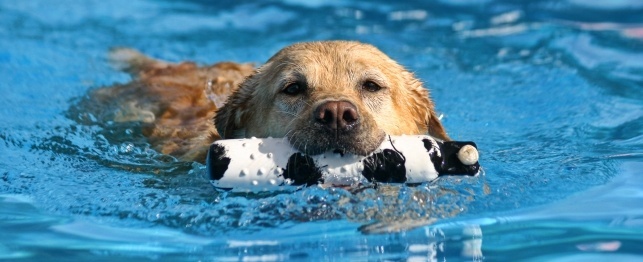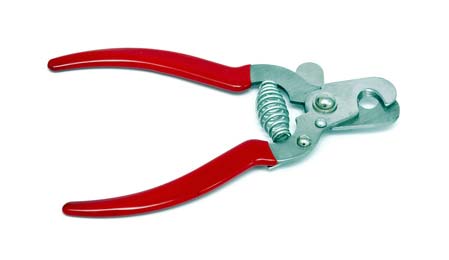

Dogs
On a blistering hot day, owning a pool definitely has its advantages as a refuge from the heat. It also holds the potential for a family tragedy all year round if you are not careful.
Pool safety issues for pets are almost synonymous with those for children, and they go far beyond just careful supervision. With pets and kids, you can never assume that you can watch them all the time. It only takes a few minutes of distraction for either one to fly out the door and into the pool. In fact, one study showed that in the case of children, supervision failed in 69 percent of the drowning incidents.
With that said, pools can be great fun for your pet. Here are just a few of the issues you should consider:
If you take your dog to the beach, watch for signs of overheating and sun exposure carefully; the sand gets very hot, the sun is more intense and dogs perspire through the pads on their feet.
During summer the water warms up as well, spurring the growth of "sea lice," which are microscopic organisms that can cause severe itching. Warnings are usually posted when lice are present in great numbers. However, after swimming in the ocean, you and your dog should rinse thoroughly with fresh water immediately. If you see red bumps and your dog is scratching furiously, take him to a veterinarian for treatment.
 Dealing with Dog Poop - Green Solutions
Dealing with Dog Poop - Green Solutions
Dealing with Dog Poop - Green Solutions
Dealing with Dog Poop - Green Solutions
 Lyme Disease in Dogs: Symptoms, Testing, Treatment, and Prevention
What is Lyme disease?
Lyme disease
Lyme Disease in Dogs: Symptoms, Testing, Treatment, and Prevention
What is Lyme disease?
Lyme disease
 Causes of Mammary Enlargement in Dogs
When a bitch goes through a false p
Causes of Mammary Enlargement in Dogs
When a bitch goes through a false p
 Infertility In The Bitch CHF and Zoetis Podcast Reproduction Series
The AKC Canine Health Foundation (C
Infertility In The Bitch CHF and Zoetis Podcast Reproduction Series
The AKC Canine Health Foundation (C
 Paws: Spring Cleaning
Spring is in the air and mud is on
Paws: Spring Cleaning
Spring is in the air and mud is on
Copyright © 2005-2016 Pet Information All Rights Reserved
Contact us: www162date@outlook.com